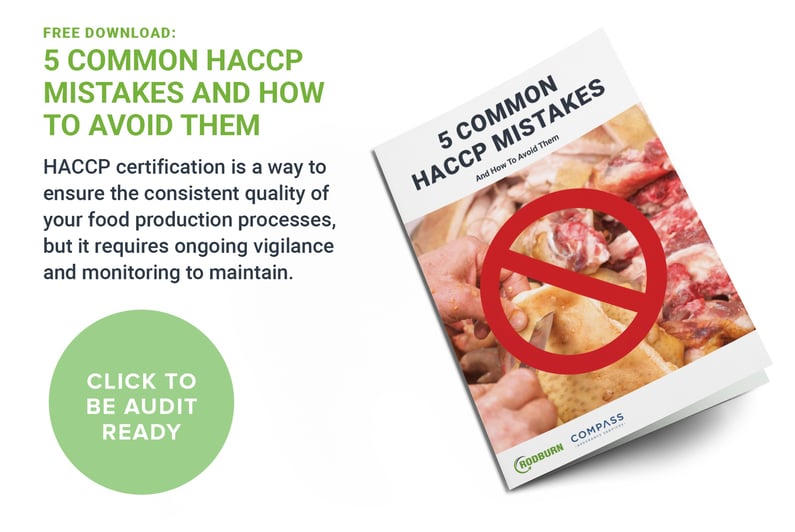There is some lingering negativity around HACCP auditing, with the perception that it is intimidating, time-consuming and intrusive. But HACCP auditing doesn’t need to be a pain – here are three of the most common sticking points around auditing, and how to avoid them.
Pain Point # 1: Negative perceptions around personal performance
One of the pain points around HACCP auditing is the perception that negative findings reflect poorly on management, particularly if it relates to the manager’s personal set of KPIs (key performance indicators). This can be damaging (and possibly dangerous), because it can encourage a culture of covering up mistakes or non-compliance. This comes from a lack of understanding of the purpose of HACCP auditing, which is to improve processes – not to punish people.
Pain Point # 2: Getting the right resources to make HACCP work
Another pain point when it comes to auditing is getting the resources to make sure that HACCP systems are operating as they should. Sometimes it is a struggle to get the right resources because they are seen as a net outgoing from the business with no tangible return. The thing with HACCP is that it is a bit like insurance: you only really perceive the benefits when something goes wrong. Management needs to be made aware of the benefits of having adequate resources.
Pain Point # 3: Struggles transitioning from small to large operation
Many organisations struggle when transitioning from a small to a large operation requiring HACCP certification, and for smaller companies wanting to deal with bigger retailers it becomes a “license” to do business with the major chains. Many want to see if the costs in certification warrant the change, and much of this is driven by the client because some businesses buck at the obligation and expense. This is a reactive approach, but the benefits of distinguishing yourself in the marketplace and the trust it engenders with customers makes it worthwhile.
We hope this helps overcome some of the common pain points and negative mindsets around HACCP auditing. With the right attitude and the right approach, auditing can be a positive experience for all involved.






